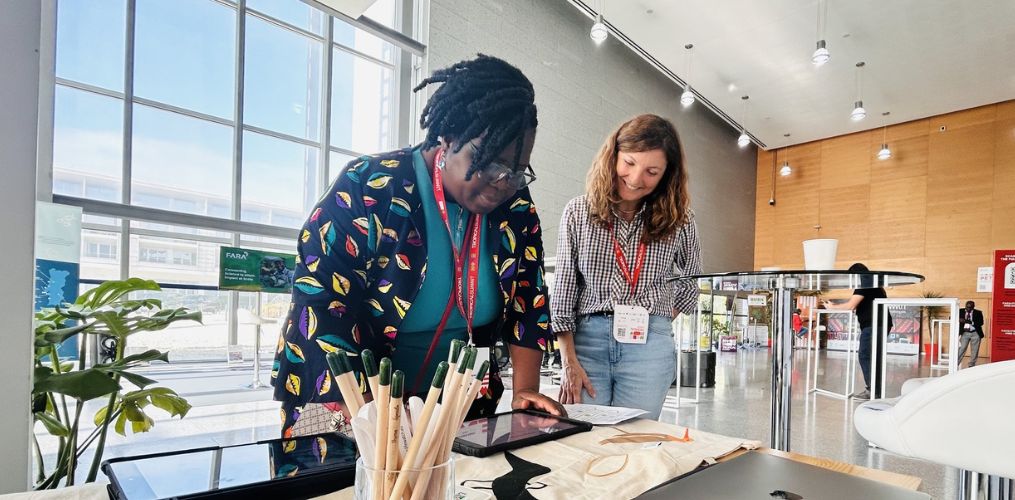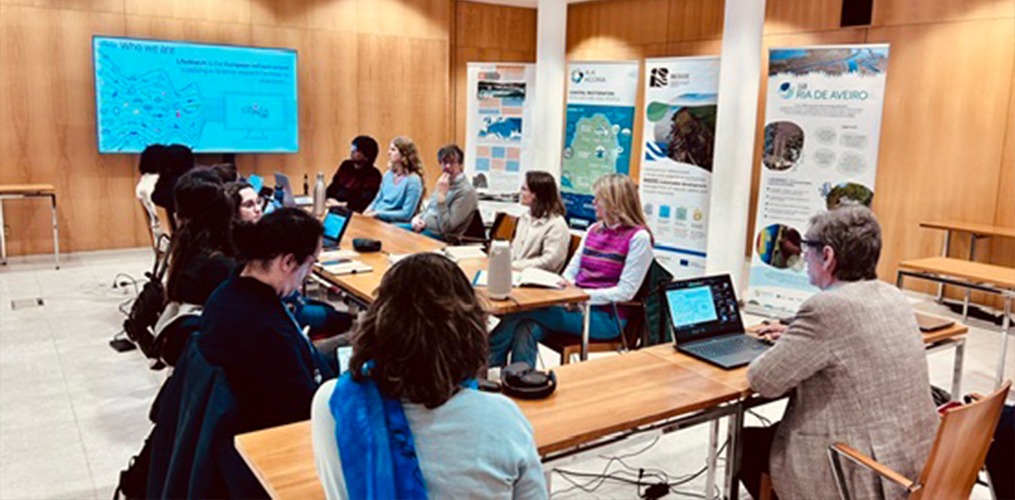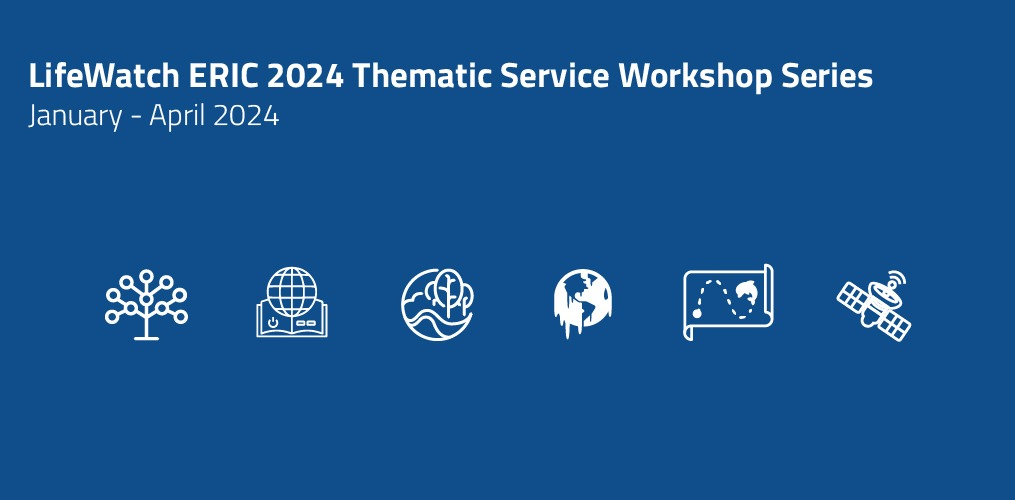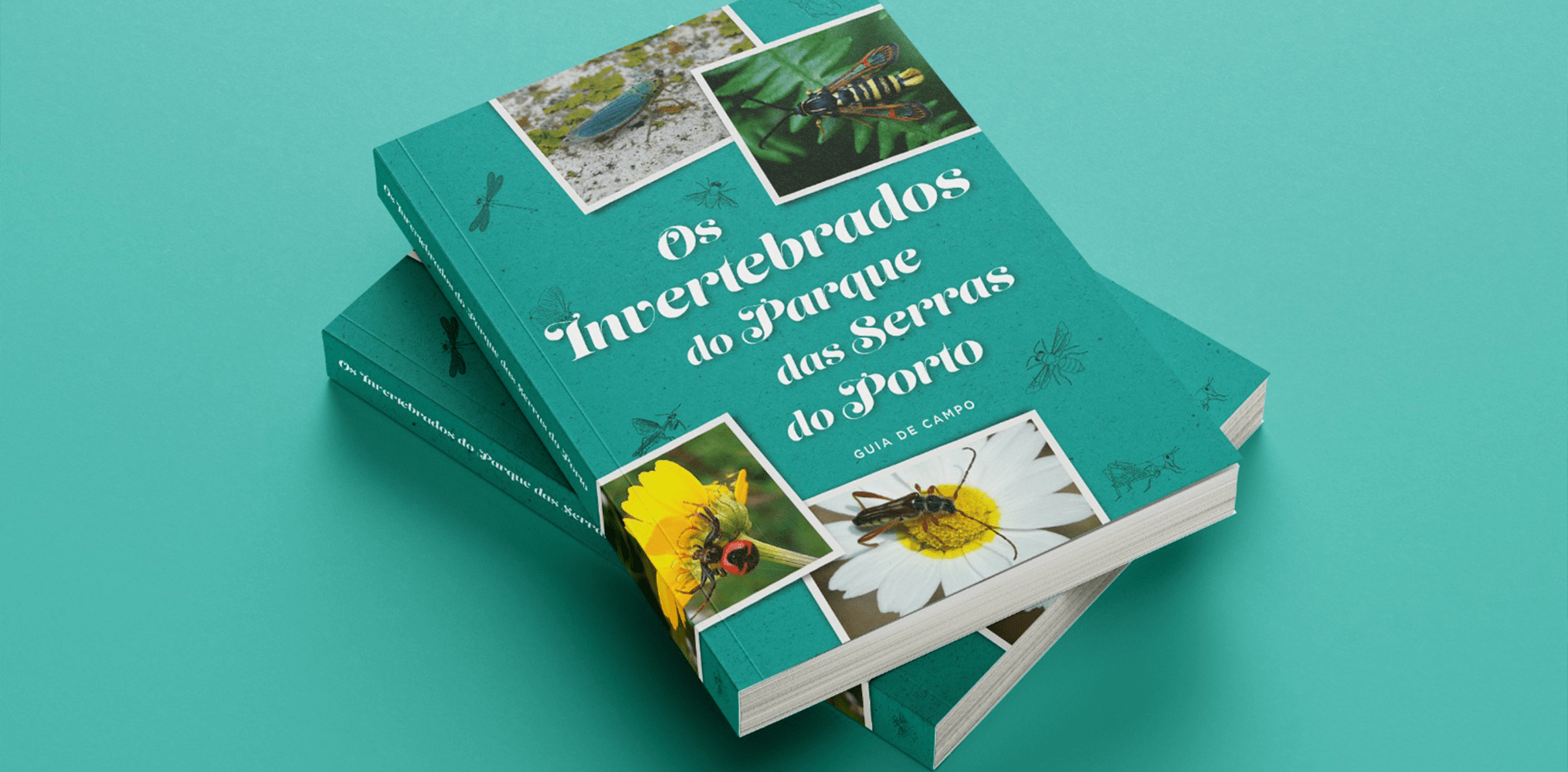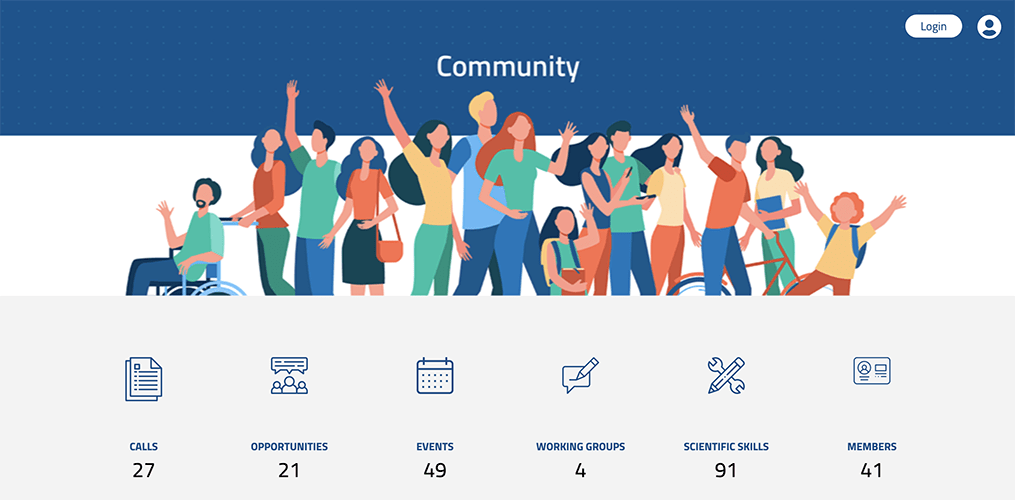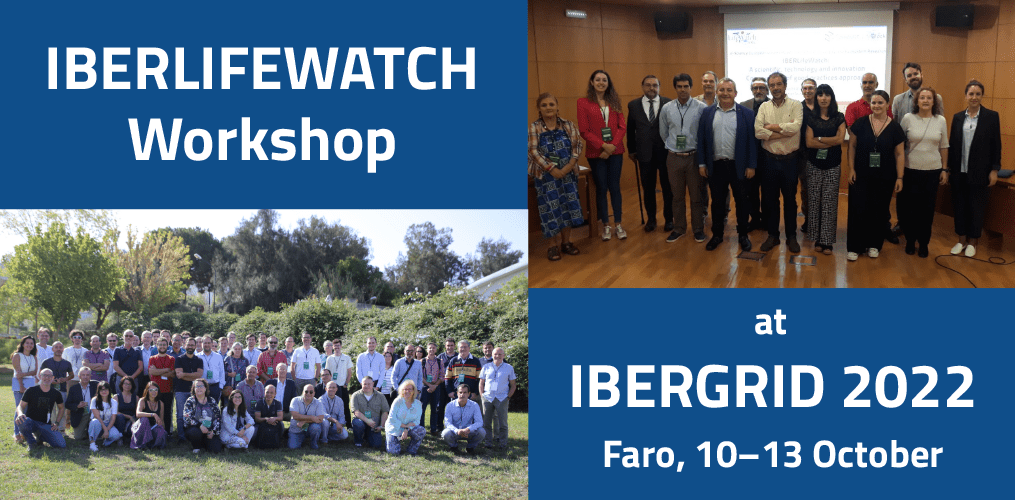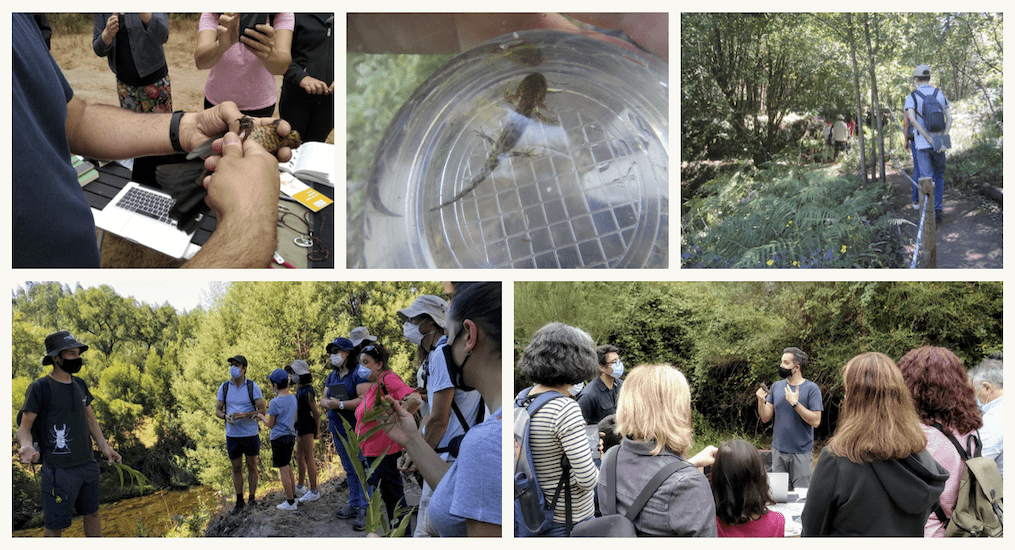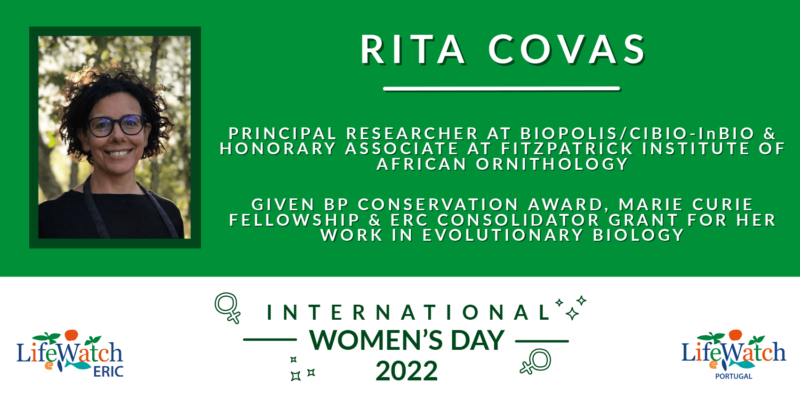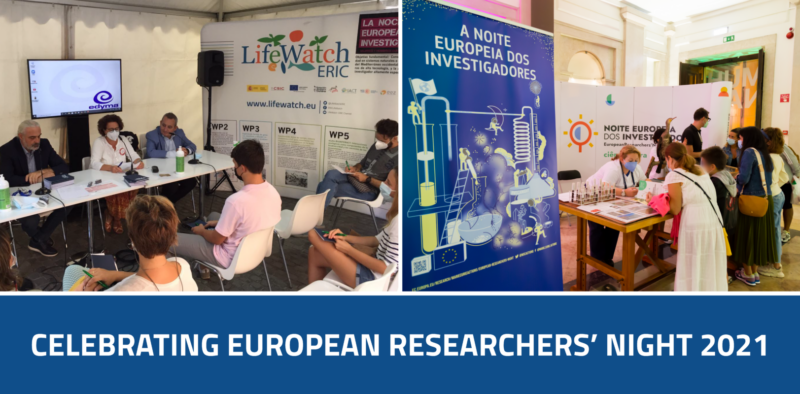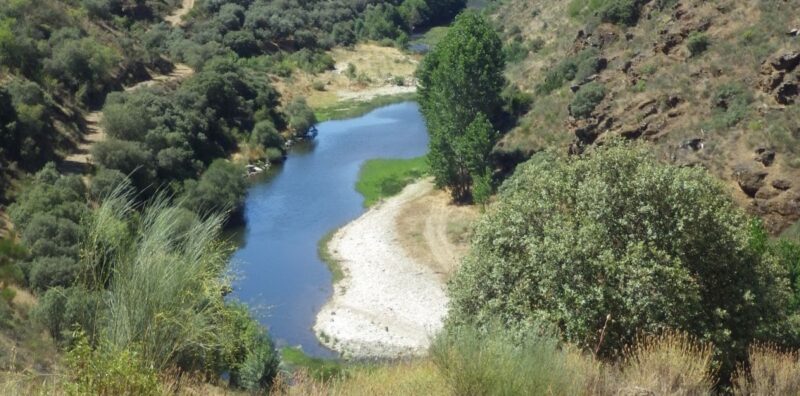On 4-8 November 2024, LifeWatch ERIC attended the Tropical Summit 2024 in Lisbon, being present with a stand in the “Biodiversity and digitalisation” section of the Exhibition Hall.
The event was a key opportunity to present our Research Infrastructure to the people stopping at our booth, highlighting its main services and tools, and presenting some demos on Metadata Catalogue and EcoPortal. We also proposed a survey we prepared for the participants, that people can fill as an additional form of engagement.
Moreover, LifeWatch ERIC presented the project Marine SABRES, showing the project brochure, and the videos we produced in the framework of the project, with a special focus on the Macaronesia DA, where the climate of the islands varies from subtropical to tropical – a region that for this reason was even more connected to the themes of the conference. Here, the project is focusing on promoting a marine biological corridor between the Azores, Madeira and Canary archipelagos, especially paying attention to the management of migratory species like marine birds, mammals and big pelagic species like tuna. The benefits of ecotourism, and of conservation and restoration actions are also being evaluated. The booth promoted best practices and examples, fostered by the project’s approach, of sustainable use of marine resources and tourism, raising awareness on the importance of governance solutions to address the impacts of future economic and climate scenarios.
Approximately 50-70 people, including passionate university students and researchers, experts and representatives from the world of NGOs, start-ups and businesses coming from different tropical countries, such as Nigeria, Kenya, Zimbabwe, Costa Rica, Colombia, India etc, amongst others, visited our stand and learned more about how to restore marine biodiversity and support a sustainable blue economy by increasing the uptake of ecosystem-based management. During the event, LifeWatch ERIC also engaged with some participants to promote its Serious Game School Competition (more information here).
Have a look at our photogallery, enjoy all the moments of this incredible event exploring sustainability, resilience, and inclusive growth!
The summit
The Tropical Summit 2024 was a truly inspiring global gathering: more than 400 hundreds of individuals, representing over 50 nationalities, came together under one roof to discuss, collaborate, and drive progress toward the 2030 Agenda goals. The harsh lessons of the past, in fact, evidenced in the many unfulfilled global agendas, underlined the imperative of not treating the 2030 deadline as a distant point in the time horizon, but as an urgent reality, which requires immediate attention.
The summit sought to embrace everyone who contributes to the sustainable development of tropical regions. Therefore, the main objectives of the Tropical Summit were to promote the transfer of knowledge, catalyse stakeholder engagement, foster multidisciplinary collaboration, and contribute to the co-creation of innovative projects, accelerating the implementations of concrete and robust solutions. The focus was on driving investments, forging new partnerships, and advancing multi-actor actions through South-South-North triangular cooperation across four key domains:
- Planetary Health: Nurturing life within the global boundaries
- Agricultural Development: Sustainability as a path to socioeconomic progress
- Territorial and Social Transitions: Building resilient spaces and societies in every dimension
- Human Growth: Empowerment and technology for the times ahead
Have a look at our photogallery, enjoy all the moments of this truly inspiring conference!
For more information, please visit Marine SABRES official website: www.marinesabres.eu
Watch our documentary trailers on LifeWatching WebTV platform: www.lifewatching.tv/tv-show/marine-sabres/
